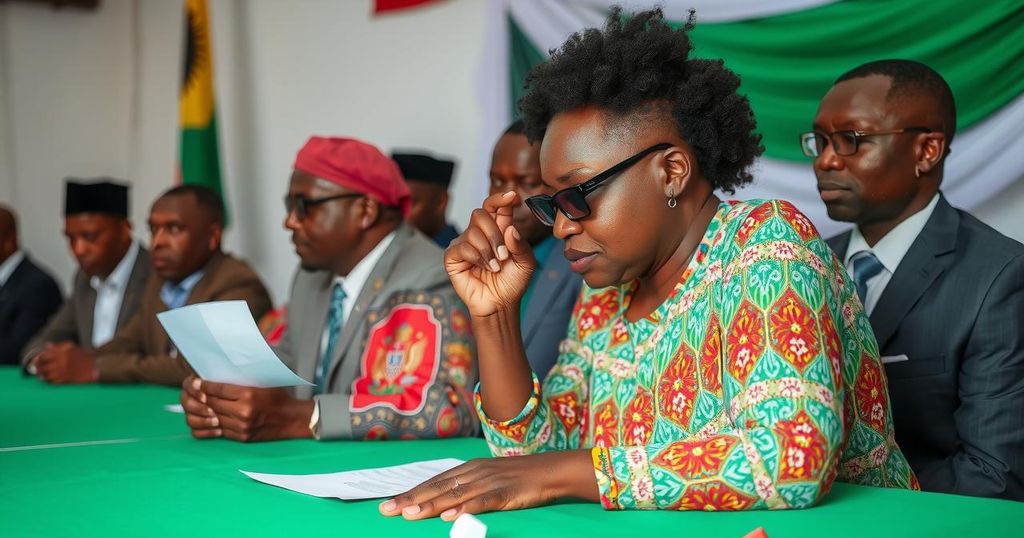Comoros held a parliamentary election on Sunday boycotted by several opposition parties who accused President Azali Assoumani of authoritarianism and questioned election integrity. Approximately 330,000 out of 850,000 registered voters are expected to participate, although turnout is anticipated to be low. Assoumani’s presidency has been marked by allegations of electoral manipulation and repression, with the election occurring under adverse weather conditions from Tropical Cyclone Dikeledi.
On Sunday, Comoros conducted a parliamentary election, which faced a boycott from several opposition parties. These factions have accused President Azali Assoumani and his ruling party of increasingly authoritarian behavior and raised issues regarding the credibility of the electoral process. The election will determine the members of the 33-seat legislature, with results anticipated the following week.
Approximately 330,000 voters are registered in the archipelago’s population of 850,000, although opposition groups predict voter turnout will be low due to widespread disillusionment with the democratic system. President Assoumani’s Convention for the Renewal of the Comoros previously won 20 of the 24 available seats in the 2020 election, which opposition leaders characterized as a “masquerade” and not reflective of a free and fair voting process.
Assoumani, who has been president since 2016 after returning to power, has repeatedly faced allegations of manipulation during elections. In his hometown of Mitsoudjé on Grande Comore, he exercised his right to vote on Sunday. The Juwa Party, led by former President Ahmed Abdallah Sambi, opted to boycott this election, as they did in 2020, highlighting a continued resistance against the electoral framework.
Comoros, an island nation plagued by military coups since its independence from France in 1975, has witnessed Assoumani navigating constitutional changes since 2018 that allowed him to extend his presidency beyond designated term limits. He first seized power in 1999 and has since maintained control, with various observers noted that his presidency “has been marked by growing political repression and non-competitive elections.” Despite adverse weather conditions caused by Tropical Cyclone Dikeledi, officials confirmed that voting proceeded as scheduled.
Comoros is a small archipelago located in the Indian Ocean, comprised of three islands near Madagascar. It has a tumultuous political history characterized by military coups since obtaining independence from France in 1975. President Azali Assoumani, a former military officer, first rose to power in 1999 via a coup and has since established a significant influence over the political landscape. His tenure has been marred by allegations of electoral fraud and suppression of dissent, particularly during recent elections. The current parliamentary elections are critical due to the historical context of voting irregularities and the ongoing struggle for political legitimacy in Comoros, as many opposition groups contend that the elections are manipulated to favor the ruling party.
The parliamentary election in Comoros has raised significant concerns over political integrity and democratic processes. Opposition parties have boycotted the elections, reflecting widespread dissatisfaction with President Assoumani’s administration and its tendency toward authoritarianism. The expected low voter turnout underscores this discontent, amidst ongoing challenges to political stability and reform. As Comoros navigates its complex history of governance and civil rights, the outcome of this election remains pivotal for its future.
Original Source: apnews.com






